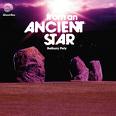If hauntological music is a simple exercise in nostalgia then clearly it has failed. If all it conjures up are memories of waiting for the pips to go out before the science for schools programme started then the most it can do is put a wry smile on the face.

Belbury Poly – From An Ancient Star
(Ghost Box)
Belbury Poly, along with the Ghost Box label in general, have recently been tagged with the hauntology label. I’m not sure it’s going to catch on but we all like labels, don’t we? So what does hauntology sound like? Well, the first thing to note is that it’s a very English and is largely rooted in the years between the Second World War and the mid seventies. Its world dominated by the prosaic – by children’s television of the disturbing kind, by public safety broadcasts and by all kinds of detritus that lies largely forgotten and unloved. If it was a building it would be a rotting industrial complex, bordered by a skanky wood on one side and a modern suburban estate on the other.
If hauntological music is a simple exercise in nostalgia then clearly it has failed. If all it conjures up are memories of waiting for the pips to go out before the science for schools programme started then the most it can do is put a wry smile on the face. The idea, of course, is to mine the past in such a way that something new and strange emerges. Ideally a false but perfectly believable world should be created, one that is immediately recognisable and yet deeply peculiar at the same time. Basically it’s Sapphire and Steel in aural form.
So what does it sound like? Album opener The Hidden Door is a great track. Propulsive beats and synths rock out through its hypnotic five minutes. In a way it is the most successful track on the album. It’s a perfect synthesis of the modern, the seventies, and the ancient. From An Ancient Star starts off sounding like music for a medieval banquet. Seventies synths turn it into the music for a Doctor Who episode – on closer inspection those revellers were actually androids. A Year and A Day is a disquieting pastoral lament whilst The All At Once Club is a funky little number. Widdershins returns to the medieval sounds of From An Ancient Star but adds bigger beats. When the track really gets going it’s a bit like a synth based Wicker Man. A Great Day Out is a genuine oddity. It starts out all twinkly, like the soundtrack for a pre-school children’s TV programme. But then, as a Scottish bloke tells us a story about sheep, it turns into a dub skank.
By now you probably get the gist. When it works – when the sound sources are transcended – then it’s great. Not that they can ever truly be transcended for then the hauntological aspect would be lost. But it’s when you find yourself wandering in an imaginary landscape (the band’s name is taken from the fictional village in C S Lewis’ novel That Hideous Strength) where Tudor houses are staffed by androids and there’s Morris dancing in the back garden, that you realise how the music has worked its magic.
Words: Chris Dawson

